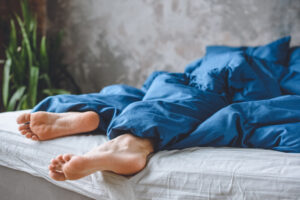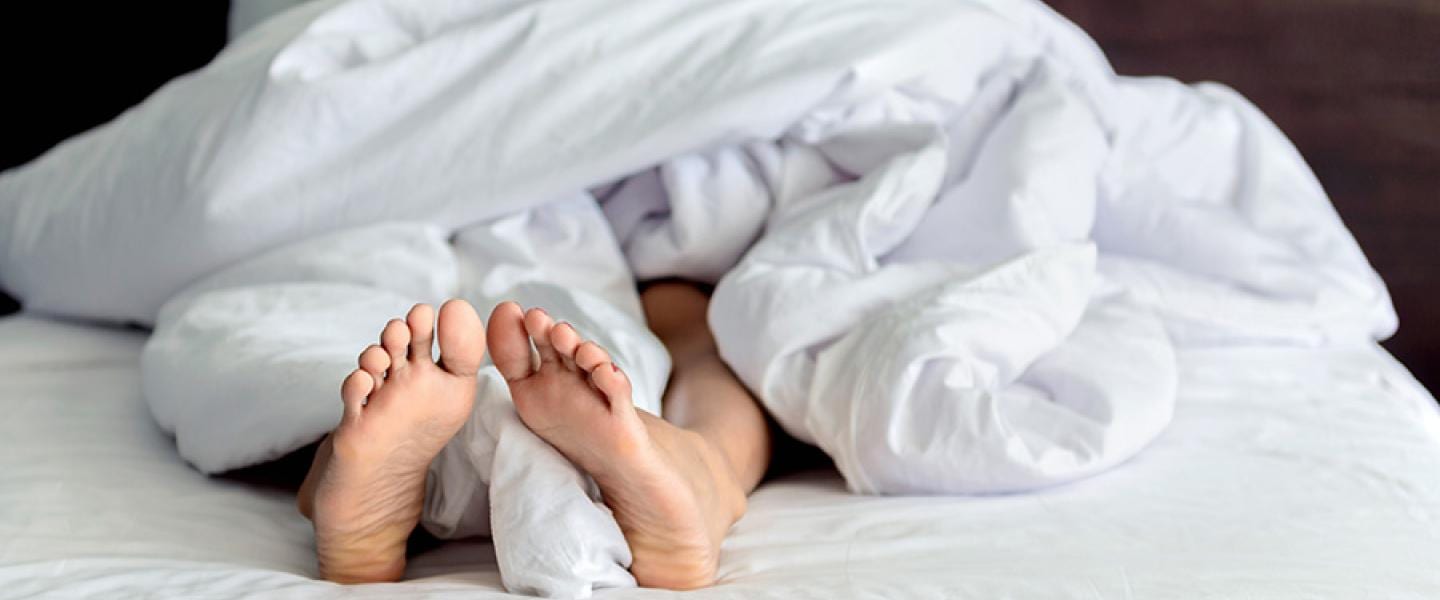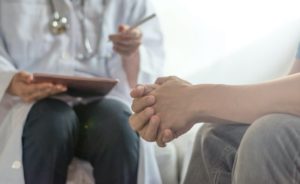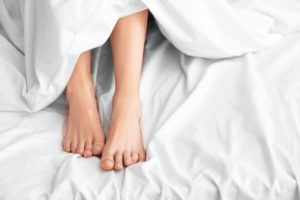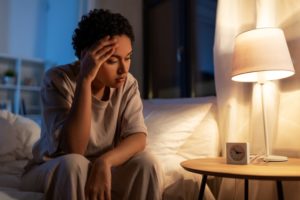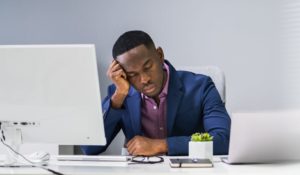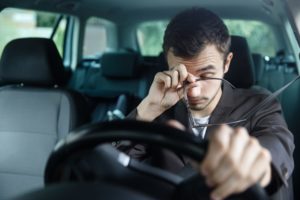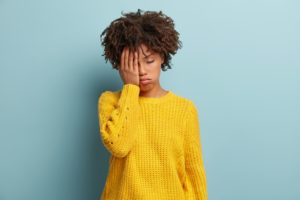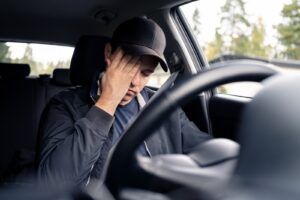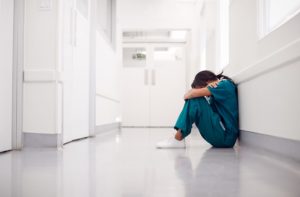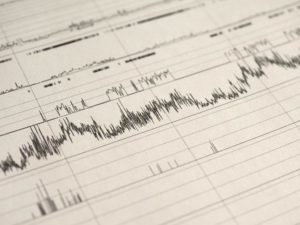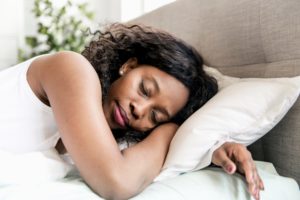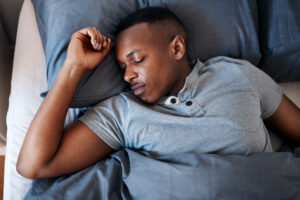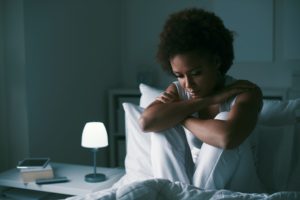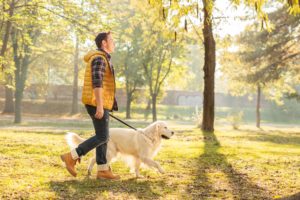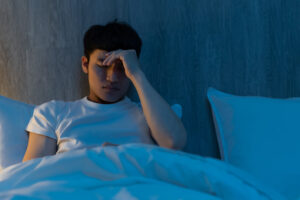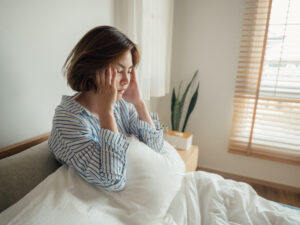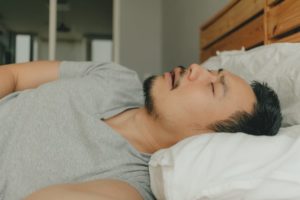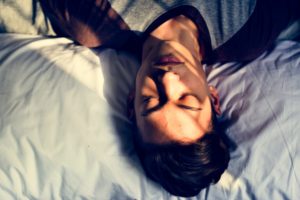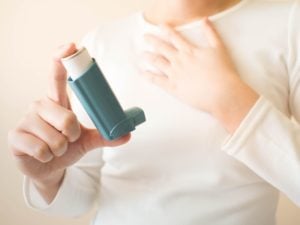What is Orthosomnia?
A growing number of people use wearable fitness trackers to learn more about their sleep, but some experts are concerned that a preoccupation with sleep tracker data may lead to worse sleep.
Orthosomnia is the proposed term for an obsessive pursuit of optimal sleep that is driven by sleep tracker data.
Since orthosomnia is a new term for an emerging trend, there is no standard definition or list of symptoms. However, the condition may include self-diagnosis of sleep disorders from sleep tracker data. It can also involve an excessive focus on improving data from a sleep tracker instead of actual sleep quality. For example, the people described in the initial research on orthosomnia stayed in bed for too long in hopes of improving their sleep tracker data.
While there is limited research on orthosomnia, learning about this emerging topic may be beneficial for people interested in using sleep trackers to monitor their sleep health. We take a closer look at sleep tracker accuracy, potential orthosomnia symptoms, and proposed solutions for preventing and managing orthosomnia.
Orthosomnia vs. Insomnia
Insomnia is a common sleep disorder primarily defined by difficulty falling or staying asleep, while orthosomnia is not a formal disorder and describes a tendency to place undue importance on the data from personal sleep-tracking devices.
Orthosomnia can occur alongside insomnia and other sleep disorders. Orthosomnia has the potential to exacerbate sleeping problems, and it may persist even after a primary sleep disorder has been successfully treated.
The Role of Sleep Trackers
Approximately 30% of American adults use a wearable device to collect health-related data. Fitness and activity trackers have grown in popularity, and some provide information about sleep.
Sleep tracking with wearable devices uses algorithms to analyze data collected by the device. Over time, these algorithms have integrated more complex measurements, and now sleep tracking often claims to offer statistics on the amount of total sleep time, time spent in different sleep stages, a “sleep score” based on sleep quality, or information about breathing or heart rate during sleep.
Despite the popularity of sleep trackers, both users and researchers have expressed concerns about the accuracy of data provided by wearable devices. The FDA does not regulate sleep trackers, and ongoing research shows that they may not accurately interpret some sleep metrics.
A 2019 analysis found that sleep trackers have become more reliable over time and can provide roughly accurate estimations of total sleep and time in bed that is actually spent sleeping. However, even newer-generation sleep trackers were only moderately successful at determining sleep stages. This data was backed up by a 2021 study that found trackers only accurately identified deep sleep 59% of the time.
In addition to wearable sleep trackers, there are also smartphone applications that claim to track sleep. However, researchers suggest that smartphone-based sleep tracking is currently inaccurate and ineffective.
Despite concerns about the risks of sleep trackers negatively impacting sleep health, these devices may help facilitate discussions with a doctor or sleep specialist about sleep-related concerns. Information from a sleep tracker may help a doctor understand the nature of sleeping problems and determine if a sleep study is needed.

Sleep Trackers and Orthosomnia
People with orthosomnia develop an excessive focus on sleep tracker data and a quest for perfect sleep. Unfortunately, some sleep experts worry that this may detract from quality sleep for several reasons.
- Overreliance on imprecise data: People may overestimate the accuracy and reliability of sleep tracker data, which may cause them to misunderstand how well they are actually sleeping.
- Misplaced sleep goals: Orthosomnia may encourage habits that emphasize sleep tracker metrics to the detriment of actual sleep quality. For example, extra time lying still in bed may improve the sleep tracker data even if a person is actually awake.
- Distrust of sleep studies: If people become acclimated to only trusting their sleep tracker, they may discount information that comes from formal sleep studies, which are widely considered by sleep specialists to be the most accurate source of detailed data about sleep.
In addition, an obsessive focus on optimizing sleep tracker data may create anxiety or stress that can negatively affect sleep.
Additional research is necessary to better understand orthosomnia and its effects, especially as sleep tracker technology develops and more people use these devices over an extended period of time.
Symptoms of Orthosomnia
There is no established list of symptoms of orthosomnia.
Orthosomnia is not a recognized medical disorder. Instead, it is a relatively new concept that has been described by some sleep researchers with limited evidence-based literature. For this reason, the current understanding of symptoms of orthosomnia is based on observations from case studies of small numbers of individuals.
In those studies, people with orthosomnia believed that tracking devices offer highly accurate information about sleep and trusted sleep tracker data over more objective testing like an overnight sleep study in a specialized clinic. They spent excessive time in bed in order to improve their sleep tracker data, which may have actually contributed to their insomnia symptoms.
Beyond these specific tendencies, people with orthosomnia may also experience other symptoms related to disrupted sleep, such as:
- Fatigue
- Irritability
- Problems with concentration and memory
- Feeling unrefreshed after waking up
- Anxiety
People who believe they may be experiencing orthosomnia or who have questions or concerns about sleep data from their fitness tracker should share their concerns with their doctor.
How is Orthosomnia Diagnosed?
Orthosomnia is not an established sleep disorder that has formal criteria for diagnosis. Nevertheless, doctors may find signs of orthosomnia while evaluating a person for sleep problems. These signs typically include an exaggerated trust of sleep tracker data and an intense focus on achieving perfect sleep as measured by the sleep tracker.
Managing Orthosomnia
Even though orthosomnia is not a medical disorder, research suggests that it may negatively impact sleep. People with sleep trackers may consider steps to prevent or address orthosomnia.
One aspect of avoiding orthosomnia is remembering that sleep tracker data is not perfect and may not tell the whole story about nightly sleep. Especially for people with sleeping problems or daytime drowsiness, a doctor or sleep specialist can provide important context for understanding sleep tracker data.
In addition, people interested in improving their sleep quality may find it helpful to consider evidence-based practices to get a better night’s rest.
- Improving sleep hygiene: Keeping a regular sleep schedule, winding down before bed, and avoiding electronics in the bedroom are all components of good sleep hygiene. People who maintain their sleep hygiene create a foundation for better sleep overall.
- Reducing stress or treating anxiety: Stress and anxiety may cause or exacerbate existing sleep disorders.
- Cognitive-behavioral therapy (CBT): CBT is a practical, goal-oriented form of therapy that involves examining one’s thought patterns and beliefs. An established form of CBT called CBT-I is used to treat sleep disturbances, including insomnia.
Orthosomnia can occur alongside sleep disorders that may not be detected by a sleep tracker. A doctor is in the best position to conduct a thorough evaluation to diagnose any sleep disorder and recommend a personalized treatment plan.

Still have questions? Ask our community!
Join our Sleep Care Community — a trusted hub of sleep health professionals, product specialists, and people just like you. Whether you need expert sleep advice for your insomnia or you’re searching for the perfect mattress, we’ve got you covered. Get personalized guidance from the experts who know sleep best.
References
14 Sources
-
Baron, K. G., Abbott, S., Jao, N., Manalo, N., & Mullen, R. (2017). Orthosomnia: Are some patients taking the quantified self too far? Journal of Clinical Sleep Medicine, 13(2), 351–354.
https://pubmed.ncbi.nlm.nih.gov/27855740/ -
National Heart, Lung, and Blood Institute. (2022, March 24). Insomnia – What is insomnia?, Retrieved April 15, 2022, from
https://www.nhlbi.nih.gov/health/insomnia -
Chandrasekaran, R., Katthula, V., & Moustakas, E. (2020). Patterns of use and key predictors for the use of wearable health care devices by US adults: Insights from a national survey. Journal of Medical Internet Research, 22(10), e22443.
https://pubmed.ncbi.nlm.nih.gov/33064083 -
Haghayegh, S., Khoshnevis, S., Smolensky, M. H., Diller, K. R., & Castriotta, R. J. (2019). Accuracy of wristband Fitbit models in assessing sleep: Systematic review and meta-analysis. Journal of Medical Internet Research, 21(11), e16273.
https://pubmed.ncbi.nlm.nih.gov/31778122/ -
Food and Drug Administration. (2019, September). General wellness: Policy for low risk devices., Retrieved April 14, 2022, from
https://www.fda.gov/regulatory-information/search-fda-guidance-documents/general-wellness-policy-low-risk-devices -
Menghini, L., Yuksel, D., Goldstone, A., Baker, F. C., & de Zambotti, M. (2021). Performance of Fitbit Charge 3 against polysomnography in measuring sleep in adolescent boys and girls. Chronobiology International, 38(7), 1010–1022.
https://pubmed.ncbi.nlm.nih.gov/33792456/ -
Ananth, S. (2021). Sleep apps: Current limitations and challenges. Sleep Science, 14(1), 83-86.
https://pubmed.ncbi.nlm.nih.gov/34104344/ -
Thomas, S. J., & Gamble, K. (2022, April 6). Actigraphy in the evaluation of sleep disorders. In S. M. Harding (Ed.). UpToDate., Retrieved April 29, 2022, from
https://www.uptodate.com/contents/actigraphy-in-the-evaluation-of-sleep-disorders -
American Academy of Sleep Medicine. (2014). The International Classification of Sleep Disorders – Third Edition (ICSD-3). Darien, IL: American Academy of Sleep Medicine.
https://learn.aasm.org/ -
MedlinePlus: National Library of Medicine (US). (2014, April 14). Healthy Sleep., Retrieved April 16, 2022, from
https://medlineplus.gov/healthysleep.html -
Han, K. S., Kim, L., & Shim, I. (2012). Stress and sleep disorder. Experimental Neurobiology, 21(4), 141–150.
https://pubmed.ncbi.nlm.nih.gov/23319874/ -
Cox, R. C., & Olatunji, B. O. (2020). Sleep in the anxiety-related disorders: A meta-analysis of subjective and objective research. Sleep Medicine Reviews, 51, 101282.
https://pubmed.ncbi.nlm.nih.gov/32109832/ -
Chand, S. P., Kuckel, D. P., & Huecker, M. R. (2021, August 26). Cognitive behavior therapy. In StatPearls. StatPearls Publishing., Retrieved April 16, 2022, from
https://www.ncbi.nlm.nih.gov/books/NBK470241/ -
Cunningham, J. E., & Shapiro, C. M. (2018). Cognitive behavioural therapy for insomnia (CBT-I) to treat depression: A systematic review. Journal of Psychosomatic Research, 106, 1–12.
https://pubmed.ncbi.nlm.nih.gov/29455893/


